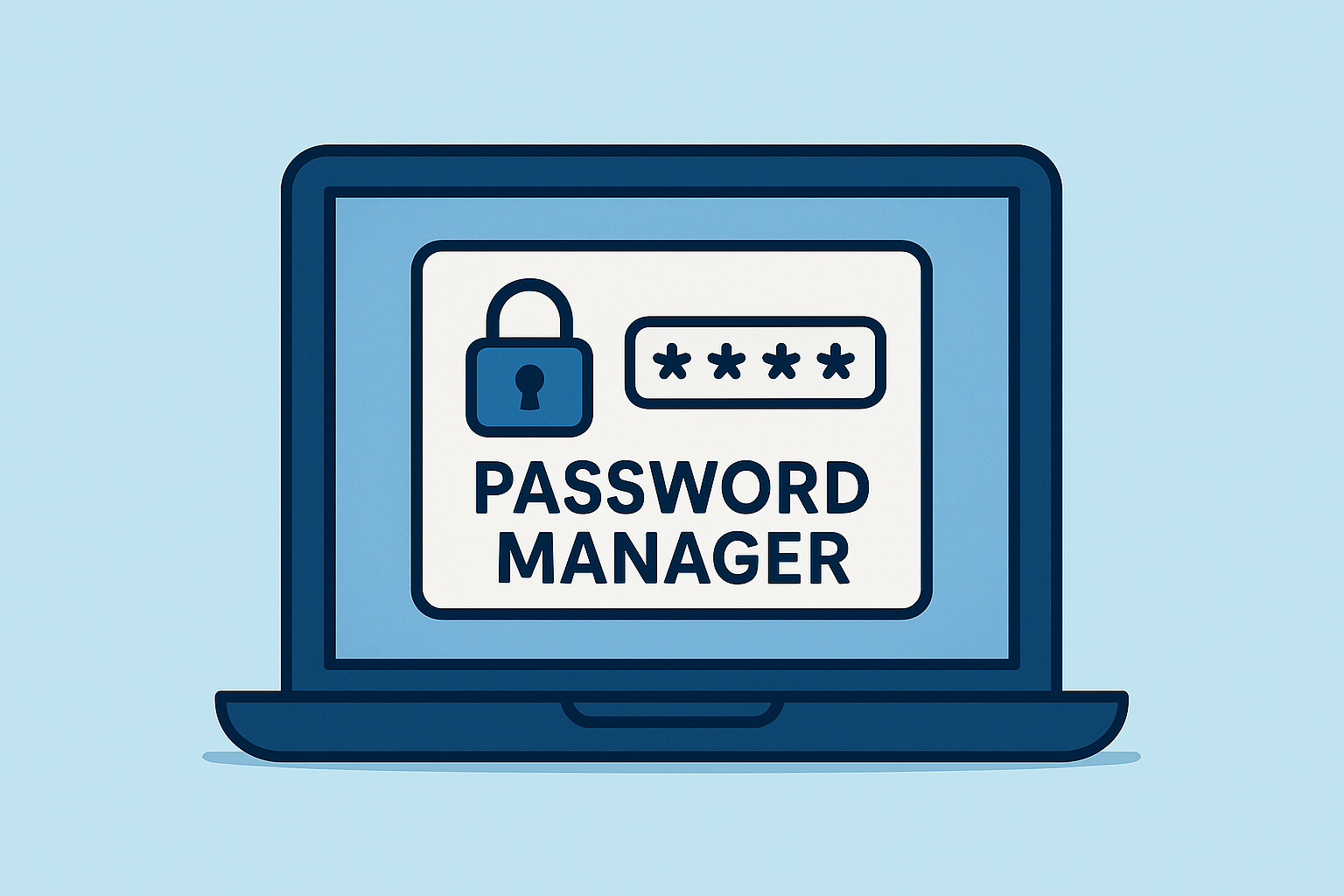Passwords are essential, but they’ve become a major burden. Forgotten logins, weak credentials, and reused passwords all create unnecessary risks. Fortunately, there’s a simple fix: using a password manager. These tools securely store and manage all your credentials, saving you time and helping you stay protected online.
What is a password manager?
A password manager is a secure program that stores all of your login credentials in one encrypted vault. You only need to remember one strong master password to access it. From there, you can save, retrieve, and generate secure passwords for every site you use. Check out this video to learn more about password managers and strategies.
Are Password Managers Safe?
Yes—when used correctly, password managers are among the safest ways to store and manage passwords. They use end-to-end encryption, meaning your data is encrypted on your device before it ever reaches their servers, and only you hold the key (your master password). Even if a password manager’s servers were compromised, your encrypted vault would remain unreadable without your master password. As long as you choose a reputable provider and use a strong master password, password managers significantly improve your security compared to trying to remember or manually store passwords yourself.
Why you should use a password manager
Password managers take the hassle out of managing your online accounts. Instead of memorizing dozens of complex passwords, you rely on a single master password (and multifactor authentication, right?) to access your vault. They help eliminate risky practices like reusing passwords or writing them down, and most include tools to generate strong, unique passwords and fill them in automatically.
Password managers that you can check out:
At Endsight, we use 1Password and outside of work I use Bitwarden. For the most part, any password manager will get the job done.
While some users still turn to LastPass, it’s important to note that LastPass experienced a major security breach in 2022. Hackers stole encrypted vaults and unencrypted metadata. GoTo (the owner) was not forthcoming about either of the two major breaches, raising serious concerns due to the company's lack of transparency. I recommend considering other options.
Other Unique Features to Look For
Most modern password managers offer helpful features like:
-
Access across devices (desktop, mobile, browser)
-
Autofill support in apps and websites
-
Alerts when a site you use has been compromised
-
Notifications for weak or reused passwords
-
One-click password generation and autofill
-
Secure sharing with trusted family members or team members
Why Businesses Should Use a Password Manager
Password managers aren’t just for personal use—they’re an essential tool for businesses. They allow teams to securely share credentials, prevent password sprawl, and reduce the risk of security breaches caused by poor password hygiene. Both 1Password and Bitwarden offer business-level solutions that support team vaults, user access controls, and compliance with industry standards.


